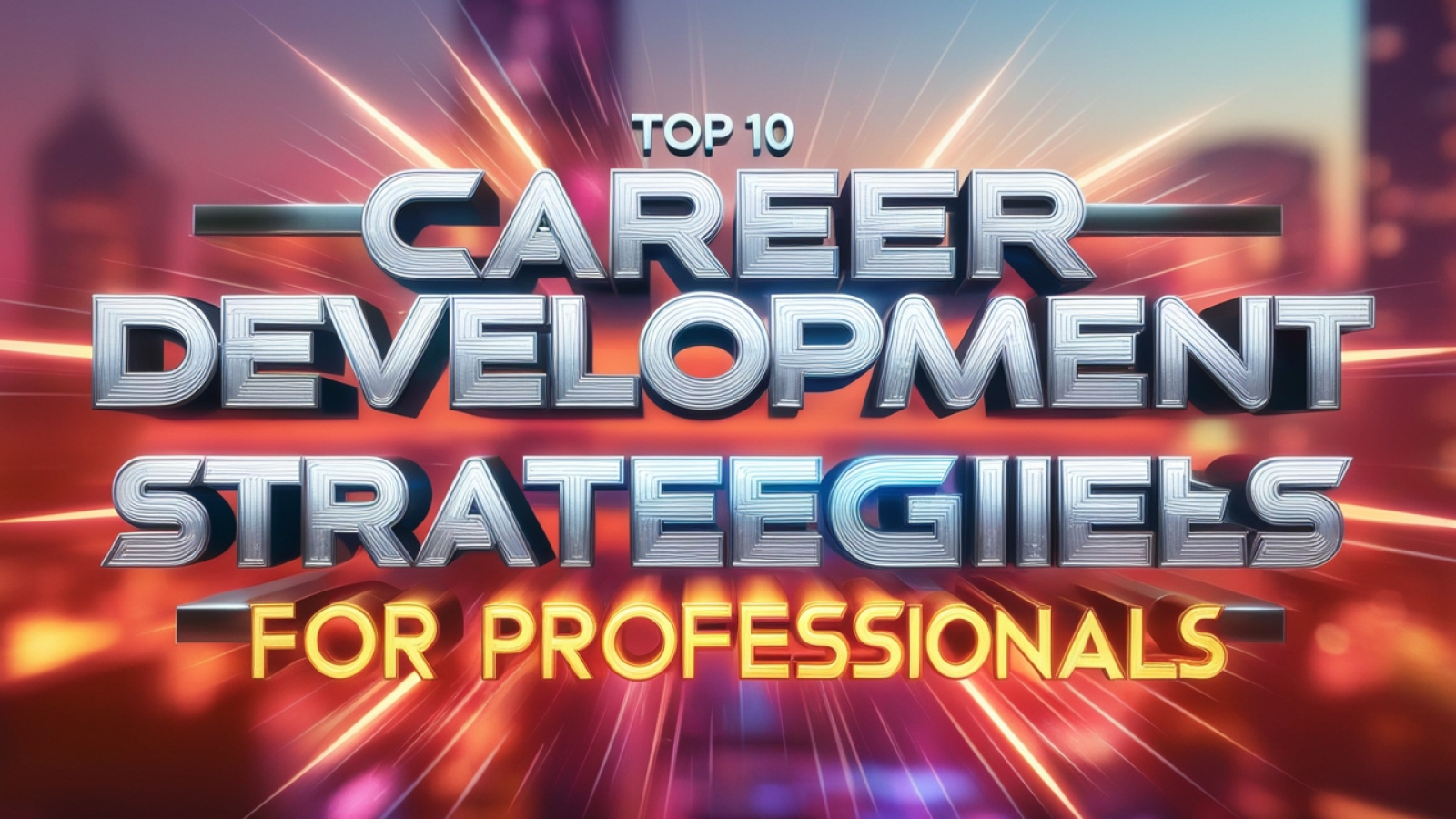Career development is a continuous process of learning, growth, and progress in your professional life. By implementing effective strategies, you can enhance your skills, increase your job satisfaction, and achieve long-term success. Here are the top 10 career development strategies for professionals to help you thrive in your career.
1. Set Clear Career Goals
Setting clear and achievable career goals is the foundation of career development. Begin by identifying your long-term objectives and break them down into short-term goals. This will provide you with a roadmap to follow and help you stay focused and motivated. Regularly review and adjust your goals to reflect changes in your interests and industry trends.
Example: If your long-term goal is to become a marketing manager, your short-term goals might include completing a certification in digital marketing, gaining experience in different marketing roles, and developing leadership skills.
2. Invest in Continuous Learning
In today’s rapidly changing job market, continuous learning is essential. Stay updated with the latest industry trends, technologies, and best practices by taking online courses, attending workshops, and reading industry-related publications. Investing in your education will keep your skills relevant and enhance your career prospects.
Example: Enroll in platforms like Coursera or Udemy to take courses in emerging fields such as artificial intelligence, data analytics, or project management. Attend industry conferences and subscribe to trade journals to stay informed.
3. Seek Mentorship and Networking Opportunities
Building a strong professional network is crucial for career development. Seek mentorship from experienced professionals who can provide guidance, support, and valuable insights into your industry. Attend networking events, join professional organizations, and participate in online forums to expand your connections and stay informed about job opportunities.
Example: Join LinkedIn groups relevant to your industry, attend local meetups, and seek out a mentor through professional associations like the American Marketing Association or the Project Management Institute.
4. Enhance Your Soft Skills
While technical skills are important, soft skills such as communication, leadership, and emotional intelligence are equally vital for career success. Work on improving your soft skills by seeking feedback, practicing active listening, and taking on leadership roles in projects or volunteer activities. Strong soft skills can set you apart from your peers and open up new career opportunities.
Example: Take part in public speaking clubs like Toastmasters to improve your communication skills. Volunteer to lead a team project at work or in a community organization to develop your leadership abilities.
5. Embrace Feedback and Self-Reflection
Feedback is a powerful tool for personal and professional growth. Actively seek feedback from colleagues, supervisors, and mentors to identify areas for improvement. Additionally, engage in regular self-reflection to assess your strengths, weaknesses, and progress toward your goals. Use this information to make informed decisions and develop a plan for continuous improvement.
Example: Schedule regular check-ins with your manager to discuss your performance and areas for growth. Keep a journal to reflect on your accomplishments and challenges and identify patterns that can inform your development.

6. Take on Challenging Projects
Volunteering for challenging projects or tasks outside your comfort zone can accelerate your career development. These opportunities allow you to develop new skills, gain valuable experience, and demonstrate your capabilities to your superiors. Successfully completing challenging projects can also lead to increased responsibilities and promotions.
Example: If you’re a software developer, volunteer to lead a new project or work on a high-profile feature. If you’re in marketing, take charge of a major campaign or initiative that requires strategic thinking and cross-departmental collaboration.
7. Build a Personal Brand
Your personal brand is a reflection of your professional reputation and can significantly impact your career. Build a strong personal brand by showcasing your expertise, accomplishments, and unique qualities through your resume, LinkedIn profile, and other professional platforms. Consistently present yourself as a knowledgeable and reliable professional to attract new opportunities and advance your career.
Example: Regularly update your LinkedIn profile with your latest achievements, publish articles on industry-related topics, and engage with others by commenting on their posts. Create a personal website to highlight your portfolio and professional journey.
8. Prioritize Work-Life Balance
Maintaining a healthy work-life balance is essential for long-term career success and personal well-being. Avoid burnout by setting boundaries, managing your time effectively, and making time for hobbies and activities outside of work. A balanced lifestyle will improve your productivity, job satisfaction, and overall quality of life.
Example: Set specific work hours and stick to them, use time management tools like Trello or Asana to organize your tasks, and make sure to allocate time for exercise, hobbies, and social activities.
9. Stay Adaptable and Open to Change
The ability to adapt to change is a critical skill in today’s dynamic job market. Stay open to new opportunities, be willing to learn new skills, and be flexible in your career path. Embracing change will help you stay competitive and resilient in the face of industry shifts and economic uncertainties.
Example: If your industry is undergoing significant changes, consider taking courses in new technologies or methodologies. Be open to taking on roles or projects that are outside your usual scope to expand your skill set.
10. Seek Career Advancement Opportunities
Proactively seek opportunities for career advancement within your organization or industry. This could include applying for promotions, taking on leadership roles, or pursuing additional certifications and qualifications. Demonstrating your commitment to growth and development will make you a valuable asset to your employer and increase your chances of career progression.
Example: If you’re aiming for a managerial position, take leadership training courses, volunteer for leadership roles within your team, and express your career aspirations during performance reviews.
Conclusion
Implementing these career development strategies can help you achieve your professional goals and build a successful and fulfilling career. By setting clear goals, investing in continuous learning, seeking mentorship, enhancing your soft skills, and staying adaptable, you can navigate the complexities of the modern job market and achieve long-term success.




Add a Comment